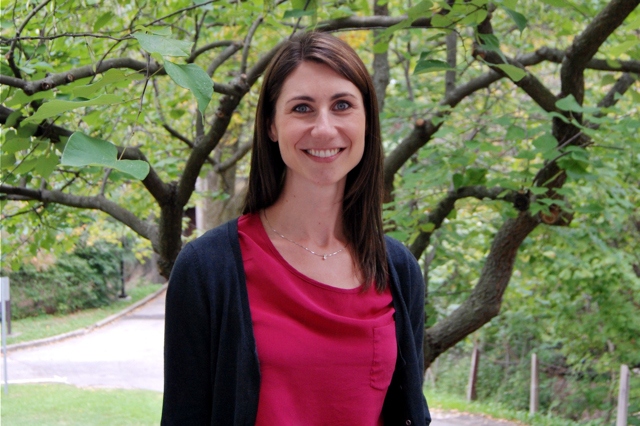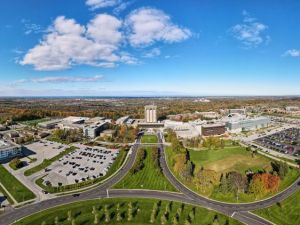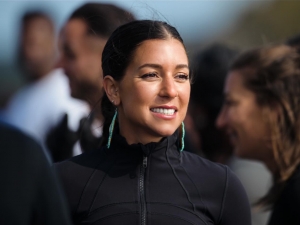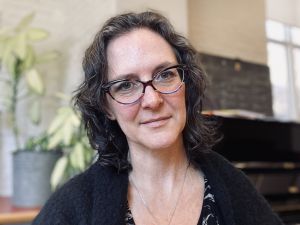 Julia Baird, Research Associate and Adjunct Professor in Brock’s Environmental Sustainability Research Centre, was part of a recent joint research project between Brock and Stockholm Environment Institute
Julia Baird, Research Associate and Adjunct Professor in Brock’s Environmental Sustainability Research Centre, was part of a recent joint research project between Brock and Stockholm Environment InstituteA joint project between Brock and Stockholm Environment Institute has found social networks play a major role in decision-making about climate change adaptation.
The project team, including faculty from Brock’s Environmental Sustainability Research Centre (ESRC), analyzed where private forest owners in Sweden received information on climate change and with whom they made forest management decisions.
More than 900 forest owners answered a questionnaire asking them to identify who they communicate with, and how often, about forestry and forest management decisions.
They were asked to rank their frequency of communication — from daily to less than annually — with people in 14 categories that included peers, associations, government agencies, banks and researchers, among others.
The top four categories were family members and co-owners, neighbours, other forest owners and forest owner associations. Near the bottom of the list were researchers and government departments.
“We found there’s a bit of a mismatch between who they have in their network that they rely on and trust the most or communicate with the most often, and who is most likely to actually hold that knowledge about climate change risks and adaptation options for them,” said Julia Baird, Research Associate and Adjunct Professor in Brock’s ESRC.
Baird participated in the project alongside Ryan Plummer, Professor and Director of the ESRC.
The research notes that family members, friends, neighbours and others close to private forest owners were considered most important by forest owners in making decisions about forest management, including climate change adaptation practices.
Respondents reported that almost half of their information on climate change came from news media reports, but they said the most important sources of forestry knowledge came from advice given by people close to them, forestry magazines and newsletters, field trips, and meetings or courses.
Baird says these findings help researchers determine where to direct information and other resources to raise forest owners’ understanding of climate change and to help them change their practices.
The team’s study identifies the impacts of climate change on forests that forestry officials worldwide have to deal with, including increased risks of storm felling, greater presence of pests and plant pathogens, and greater risk of forest fires.
Forest management changes in light of climate change could include different selections of tree species and regeneration initiatives.
Private forestry makes up almost half of all forest land in Sweden, according to the Confederation of European Forest Owners. It says about 150,000 forest owners are members of one of Sweden’s four forest owners associations.
In contrast, only six per cent of Canada’s forests are privately owned, according to Natural Resources Canada.
“However, there are 450,000 private forest owners in Canada that produce 18 per cent of Canada’s timber supply on 25 million hectares, so they also represent a significant group within Canadian forestry,” Baird said.
She believes Canadian policy-makers and researchers can benefit from the study by finding mechanisms to connect people with knowledge of current research on climate change risks and adaptation to people who manage natural resources.
Those mechanisms could include workshops or other activities that bring a variety of people together.
“I think it’s a good lesson for those who are trying to ensure that the research we’ve been doing over a long period of time is actually reaching those it needs to be reaching,” Baird said. “How do we effectively support communication for climate change adaptation?”
The team’s study, “Analysis of Swedish Forest Owners’ Information and Knowledge-Sharing Networks for Decision-Making: Insights for Climate Change Communication and Adaptation,” was published last month in the journal Environmental Management.
The research collaboration was made possible through a longstanding Letter of Agreement between the ESRC and the Stockholm Environment Institute.








